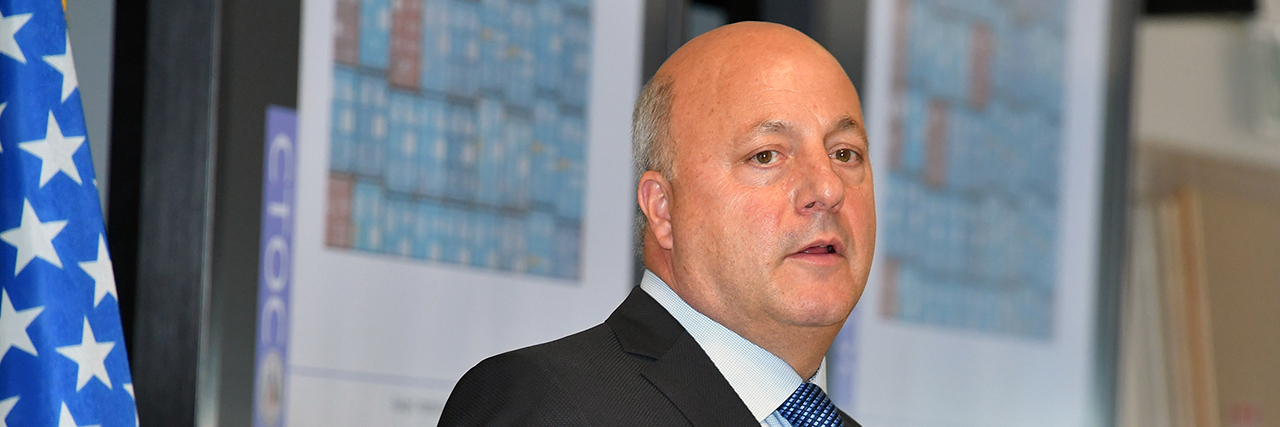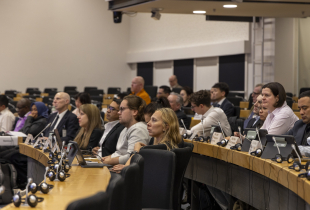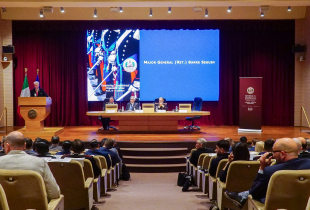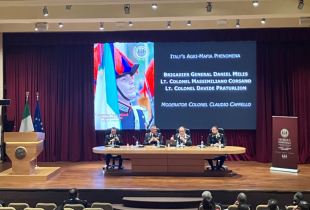
Central Asian Partners Share Insights in the Fight against Organized Crime
By Christine June
Public Affairs Office
George C. Marshall European Center for Security Studies
GARMISCH-PARTENKIRCHEN, Germany (June 23, 2017) – Almost two dozen Central Asian government officials shared strategies to fight global organized crime in their region at a four-day workshop at the George C. Marshall European Center for Security Studies, June 19 to 22.
“This was a unique opportunity to exchange ideas and experiences for these professionals, who engaged daily with countering transnational organized crime in their countries,” said German army Lt. Col. Ulrich Janssen, program manager for the Marshall Center’s Central Asia Non-Resident Program, and organizer of the event. “They had an opportunity to examine contemporary issues regarding countering transnational organized crime, and analyze existing programs, mechanisms and initiatives in each of their countries.”
CTOC and the Central Asian Region
The Central Asian region is unique in many ways, said Professor Joe Vann, Marshall Center’s Program on Countering Transnational Organized Crime (CTOC) director and the academic lead for this workshop.
He cites the various republics having rich cultural histories brought about by elaborate trade routes. These routes were developed over centuries and are part of the ancient Silk Road, which still exists today.
“Unfortunately, these trade routes are also used by transnational criminal organizations to facilitate all forms of illicit trafficking,” said Vann, a former special agent with the U.S. Naval Criminal Investigative Service, who has decades of experience in countering transnational organized crime.
He added that interdiction is made difficult by a combination of the region’s rugged mountain and long stretches of sparsely populated borders, involvement of ethnic clans, new improved roadways and rail systems, and relaxed internal borders.
“This means traffickers have numerous conveyance options and routes they can use,” Vann said. “Additionally, they generally operate in small loosely organized ethnic groups that makes interdiction efforts complicated.”
Opportunities for Multilateral Cooperation
Janssen said the workshop centered on participant-led discussions and presentations on their countries’ challenges, and an exercise to determine regional perspectives on fighting organized crime and identify opportunities for multilateral cooperation.
“I think it’s important to offer them this forum considering that in their daily operations and business, they do not communicate so much with each other,” Janssen said. “Central Asia countries seem to primarily focus on fixing the problems themselves.”
This workshop addressed emerging trends in transnational organized crime and various initiatives in countering these trends and challenges. Showcased at the workshop were examples from a collaborative approach in the United States and four out of the five Central Asian nations to multinational or regional approaches.
“Cooperation, coordination and collaboration are key to success in effectively countering the increasingly aggressive ways criminals take to make their business,” said Ambassador Douglas Griffiths, Marshall Center’s associate director for International Liaison, during opening remarks.
“Methods and procedures increasingly challenge law enforcement agencies around the world and call for interagency cooperation and a better exchange of information.”
Participants represented agencies, relevant in the fight against organized crime, from the Central Asian governments of Uzbekistan, Kazakhstan, Kyrgyzstan and Turkmenistan, and Pakistan government.
“This workshop gave a lot of different perspectives and dynamics of regional and international viewpoints on the phenomenon of transnational organized crime from subject matter experts,” said a Pakistan participant. “The first thing I believe in is that we need to know each other, and this workshop gave us that introduction and a chance to share best practices and learn from each other.”
Workshop’s Key Takeaway
The workshop was supported by a number of external subject matter experts from governments and agencies such as the Polish Border Guards, Customs Agency from the Republic of Georgia, as well as U.S. representatives from the Department of Treasury, Federal Bureau of Investigation, Defense Intelligence Agency, European Command and Central Command.
“The key takeaway for the participants is the importance of networking, collaboration and information sharing in the fight against transnational organized crime,” Vann said. “By appreciating the fact that transnational organized crime represents a threat to the national security of states, we can approach this threat with better informed collective responses.”


